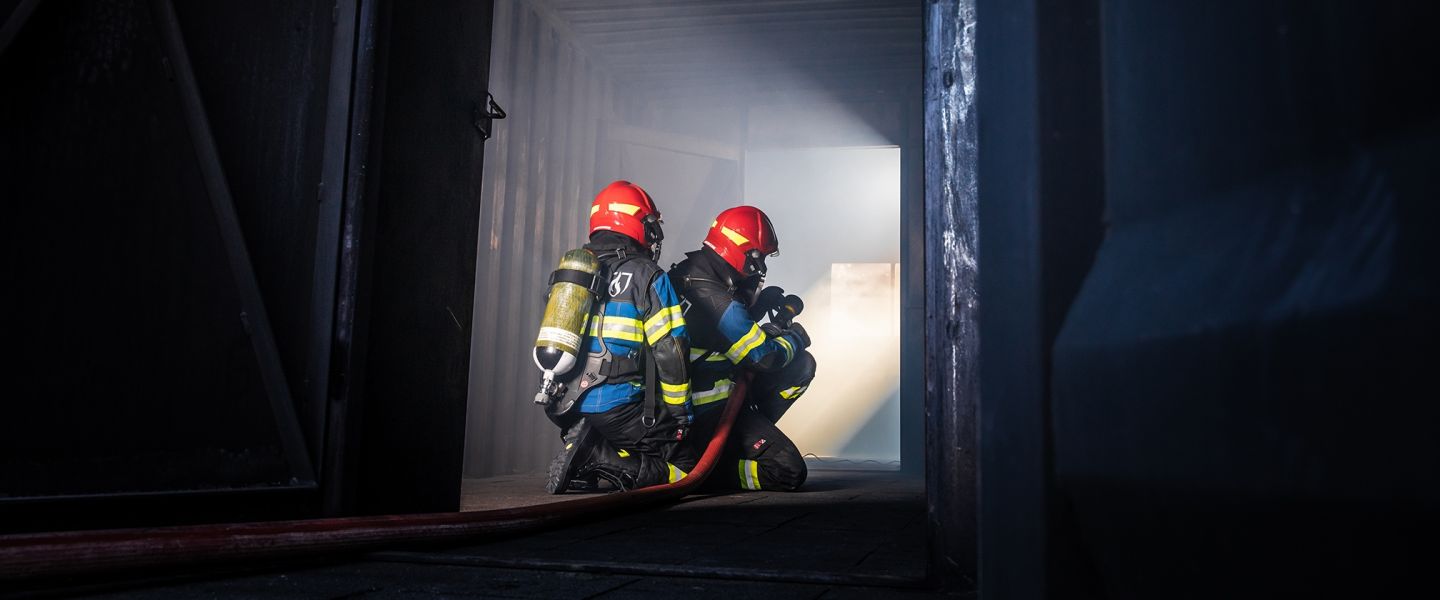What are the differences between different categories of fire marshal?
The private sector – especially the industrial sector, including the petrochemical industry – needs people who are available for higher-risk projects. Knowledge of and experience with chemical substances, processes and safety policy are essential then.
Industrial fire marshals
Industrial fire marshals are specifically trained for the petrochemical industry and other industrial environments
To fill this need, the function of preventive industrial fire marshal was established. Industrial fire marshals have been specifically trained for the petrochemical industry and other industrial environments. Examples of training courses that they will have taken are those on Small fire extinguishing equipment, CERT, Working as an outside/manhole observer, and Working with breathing apparatus. Brandwacht Huren offers these training courses through the BWH Academy so that we can provide properly trained fire marshals of all types ourselves.
Available for maintenance and shutdowns/turnarounds
Industrial fire marshals are available for guarding fire safety during maintenance work and shutdowns. Knowledge and experience of chemicals, processes and safety policies are essential for this. Their main tasks are preventing fire and monitoring safety by carrying out supervision, measuring the presence of gas, and inspecting and checking fire extinguishing equipment. They have the skills to suppress any incipient fires. Their tasks in brief:
- Monitoring high-risk buildings and projects;
- Checking that escape routes are not obstructed;
Performing gas measurements; - First-line intervention if any emergencies occur;
- Acting as life savers if any accidents occur.
Trained as Confined Space Attendants
Working safely is key. Because they have also trained as Confined Space Attendants, industrial fire marshals can also work as such. In this capacity, they guard the safety of people working in a confined space, also referred to as a ‘manhole’. Risks are inherent in this type of work. That is why supervision and, if an incident does occur, immediate readiness to contain the incident, are crucial. Confined Space Attendants can intervene, lend assistance, and communicate with the people working in a confined space. They check the space in advance to make sure that it can be accessed safely.
Government-certified fire marshals: experience with fire brigades
Government-certified fire marshals monitor work that involves fire risks and work in confined spaces in order to prevent any emergencies. They check that permits are available and correct. Although practical experience as a firefighter is not actually required for this function, government-certified firefighters are nowadays required to have done a traineeship with a fire brigade. There are now also specialist companies that teach specific training courses for these fire marshals. As a minimum requirement, government-certified fire marshals have a Rijksdiploma Brandwacht (government-accredited diploma for fire marshal) or a Manschap A (Crew Member A) diploma. The difference between government-certified fire marshals and repressive fire marshals is that government-certified fire marshals lack experience as firefighters and have no repressive turnout experience.
Diverse work locations
Government-certified fire marshals are posted on shipyards, in the petrochemical industry, and in other industrial environments, but also cover road construction and other civil engineering projects, hospitals, events or public buildings. Their main tasks are:
- Monitoring work where there are high fire and other safety risks;
- Checking permits and safety procedures;
- Checking personal protective equipment;Monitoring work where there are high fire and other safety risks;
- Patrolling areas if fire alarm systems are down;Checking permits and safety procedures;
- Monitoring the safety of people who are carrying out work.
Repressive fire marshals
Repressive fire marshals have received internal training in a fire brigade. They have been trained specifically for firefighting and to act as first responders. They are the ideal professionals to supervise high-risk activities. Repressive means that they have been trained by a fire brigade and that they can be part of the fire brigade team on a turnout. They differ from government-certified fire marshals in that they have been fully trained in a fire brigade.
Repressive experience: taking action in case of a fire
Their education has given these fire marshals the right attitude and mindset for their work. Just like government-certified fire marshals, they check permits, inspect fire extinguishing equipment, and monitor that working environments are safe and neat and tidy. They can suppress incipient fires, call the Fire Service and emergency services, and assist in evacuations.
Fire marshal as a fully-fledged firefighter
In a certain sense, repressive fire marshals act as fully-fledged firefighters, with the following tasks:
- Preventing, containing and fighting fires;
- Reducing and controlling hazards of incidents, other than fire;
- Alerting and evacuating employees and local residents;
- Measuring the presence of any hazardous substances, and disinfecting areas;
- Giving advice about fire prevention and fire control;
- Preventing, containing, and fighting incidents involving hazardous substances.
The elite among fire marshals
These fire marshals are tested annually for their compliance with the requirements of the Netherlands Institute for Safety (IFV). Their education, training and experience have made these fire marshals our elite personnel.
